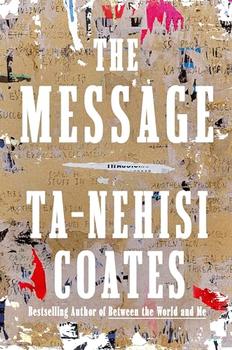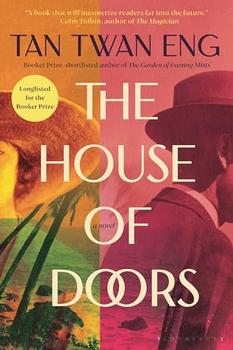
How Elon Musk Destroyed Twitter
by Kate Conger, Ryan Mac
Rising star New York Times technology reporters, Kate Conger and Ryan Mac, tell for the first time the full and shocking inside story of Elon Musk's unprecedented takeover of Twitter and the forty-four-billion-dollar deal's seismic political, social, and financial fallout.
The billionaire entrepreneur and Tesla CEO Elon Musk has become inextricable from the social media platform that until 2023 was known as Twitter. Started in the mid-2000s as a playful microblogging platform, Twitter quickly became a vital nexus of global politics, culture, and media—where the retweet button could instantly catapult any idea to hundreds of millions of screens around the world, unleashing raw collective emotion like nothing else before. While its founder had idealistically dreamed of building a "digital town square," he detested Wall Street and never focused on building a profitable business.
Musk joined the platform in 2010 and, by 2022, had become one of the site's most influential users, hooking over 80 million followers with a mix of provocations, promotion of his companies, and attacks on his enemies. To Musk, Twitter — once known for its almost absolute commitment to free speech — had badly lost its way. He blamed it for the proliferation of what he called the "woke mind virus" and claimed that the survival of democracy and the human race itself depended on the future of the site. In January of 2022, Musk began secretly accumulating Twitter stock. By April, he was its largest shareholder, and soon after, made an unsolicited offer to purchase the company for the unimaginable sum of $44 billion dollars. Backed into a corner, Twitter's board accepted his offer—but Musk quickly changed his mind, forcing Twitter to sue him to close the deal in October. The richest man on earth controlled one of the most powerful media platforms in the world—but at what price? Before long Twitter would be gone for good, replaced by something radically different, as Musk remade the company in his own image from the ground up.
The story of the showdown between Musk and Twitter and his eventual takeover of the company is unlike anything in business or media that has come before. In vivid, cinematic detail, Conger and Mac follow the inner workings of the company as Musk lays siege to it, first from the outside as one of its most vocal users, and then finally from within as a contentious and mercurial leader. Musk has shared some of his version of events, but Conger and Mac have uncovered the full story through exclusive interviews, unreported documents, and internal recordings at Twitter following the billionaire's takeover. With unparalleled sources from within and around the company, they provide a revelatory, three-dimensional, and definitive account of what really happened when Musk showed up, spoiling for a brawl and intent on revolution, with his merciless, sycophantic cadre of lawyers, investors, and bankers.
This is the defining story of our time told with uncommon style and peerless rigor. In a world of viral ideas and emotion, who gets to control the narrative, who gets to be heard, and what does power really cost?
"Engrossing, precise...New York Times reporters Conger and Mac collaborate successfully on an ambitious narrative capturing how Musk engineered Twitter's downfall, set against the vast financial stakes and dehumanizing aspects of the tech economy...Compelling fusion of business history and worrisome social narrative." —Kirkus Reviews (starred review)
"The definitive account of how the world's richest man, in a fit of unbridled vanity and arrogance, took over and destroyed our digital town square." —John Carreyrou, New York Times bestselling author of Bad Blood
"I found Character Limit astonishing. Kate Conger and Ryan Mac's meticulous, comprehensive reporting turns an opaque mess brutally transparent. Even leaving aside the ludicrous confederacy of financial instruments that made it possible for a single man to buy Twitter, this book, simply in terms of the sheer cringe and self-humiliation on display in every paragraph, adds up to one of the strongest arguments possible for why billionaires should not exist." —Jia Tolentino, New York Times bestselling author of Trick Mirror
"A gripping, behind-the-scenes account of the chaos unleashed when the world's richest man bought one of its most influential social media platforms. Through fly-on-the-wall reporting, Character Limit takes readers inside Elon Musk's tumultuous Twitter takeover and the disruption of a company, an industry, and the online public square. What a wild ride." —Bradley Hope, New York Times bestselling author of Billion Dollar Whale
This information about Character Limit was first featured
in "The BookBrowse Review" - BookBrowse's membership magazine, and in our weekly "Publishing This Week" newsletter. Publication information is for the USA, and (unless stated otherwise) represents the first print edition. The reviews are necessarily limited to those that were available to us ahead of publication. If you are the publisher or author and feel that they do not properly reflect the range of media opinion now available, send us a message with the mainstream reviews that you would like to see added.
Any "Author Information" displayed below reflects the author's biography at the time this particular book was published.
Kate Conger is a technology reporter for the New York Times. She writes about X, the social media platform formerly known as Twitter, and its owner, Elon Musk. In more than a decade of covering the tech industry, she has written about the underground world of hackers, the use of artificial intelligence in autonomous weapons and labor uprisings in the gig economy. She lives in the San Francisco Bay Area.
Ryan Mac is a Los Angeles-based technology reporter for the New York Times. He has spent more than a decade reporting on wealth and power in Silicon Valley, first on staff at Forbes, and then at BuzzFeed News, where he was a senior reporter. He led the outlet's deep reporting on Facebook, which garnered a 2019 Mirror Award and a 2021 George R. Polk Award.




No pleasure is worth giving up for the sake of two more years in a geriatric home.
Click Here to find out who said this, as well as discovering other famous literary quotes!
Your guide toexceptional books
BookBrowse seeks out and recommends the best in contemporary fiction and nonfiction—books that not only engage and entertain but also deepen our understanding of ourselves and the world around us.